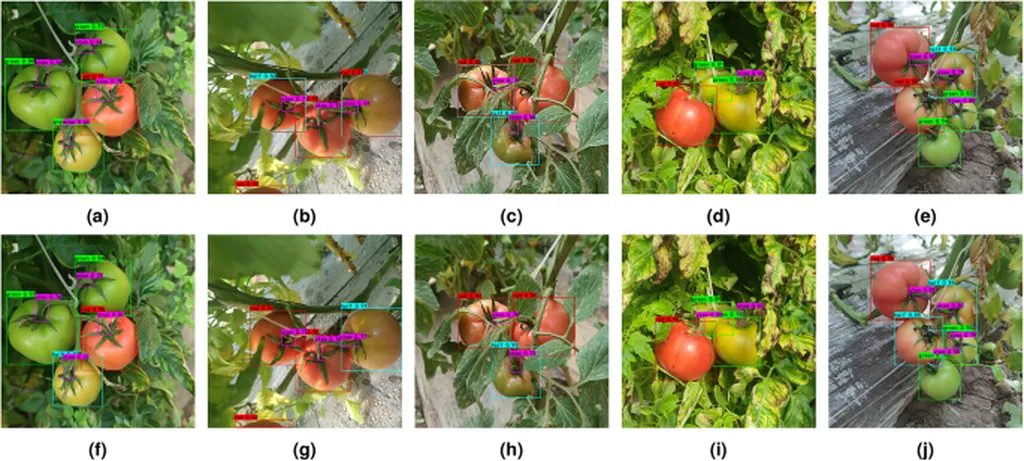In the heart of Fujian Agriculture and Forestry University, a groundbreaking development is set to revolutionize the way we assess the quality of tomato seedlings, a critical factor in agricultural productivity. Led by Xinhui Wu from the College of Mechanical and Electrical Engineering, a team of researchers has introduced ESG-YOLO, an innovative object detection algorithm that promises to enhance the precision and efficiency of transplant quality assessment for tomato seedlings.
The ESG-YOLO model, detailed in a recent study published in *Agronomy* (which translates to *Field Cultivation* in English), addresses longstanding challenges in the field, particularly the issues of false detections and missed detections during recognition. “Our goal was to create a system that could accurately and reliably assess the quality of tomato seedlings in real-time, thereby supporting the automation of agricultural processes,” Wu explained.
The ESG-YOLO model integrates three key innovations. First, it employs an Efficient Multi-scale Attention (EMA) module within the YOLOv8 neck network to suppress redundant information and focus on the morphological features of seedlings. Second, it reconstructs the feature fusion network using a GSConv-based Slim-neck architecture, achieving a lightweight structure that is compatible with edge deployment. Finally, it optimizes the detection process using the Generalized Intersection over Union (GIoU) loss function to precisely localize seedling position and morphology, significantly reducing false and missed detections.
The results are impressive. The ESG-YOLO model achieves a mean average precision (mAP) of 97.4%, surpassing other lightweight models like YOLOv3-tiny, YOLOv5n, YOLOv7-tiny, and YOLOv8n. For critical categories such as “exposed seedlings” and “missed hills,” the average precision (AP) values reach 98.8% and 94.0%, respectively. This level of accuracy is a game-changer for the agricultural sector, where the quality of seedlings directly impacts yield and profitability.
To validate the model’s effectiveness on edge devices, the team deployed the ESG-YOLO model on an NVIDIA Jetson TX2 NX platform, achieving a frame rate of 18.0 FPS. This real-time assessment capability is crucial for quality control and enhancing vegetable yield, contributing significantly to smart agriculture initiatives.
The implications of this research are far-reaching. As Wu noted, “This model provides technical support for transplanting performance assessment, enabling quality control and enhanced vegetable yield.” The ability to deploy such advanced algorithms on edge devices opens up new possibilities for precision agriculture, where real-time data can be used to make informed decisions that optimize crop production.
The commercial impacts for the energy sector are also noteworthy. As agriculture becomes more data-driven and automated, the demand for efficient, reliable, and scalable solutions will grow. The ESG-YOLO model’s success demonstrates the potential for similar technologies to be applied across various sectors, enhancing productivity and sustainability.
In the broader context, this research highlights the importance of integrating advanced technologies like artificial intelligence and machine learning into traditional industries. As we move towards a future where smart agriculture is the norm, innovations like ESG-YOLO will play a pivotal role in shaping the landscape of modern farming.
The study, published in *Agronomy*, underscores the transformative potential of these technologies. As the agricultural sector continues to evolve, the ESG-YOLO model stands as a testament to the power of innovation in driving progress and efficiency.

